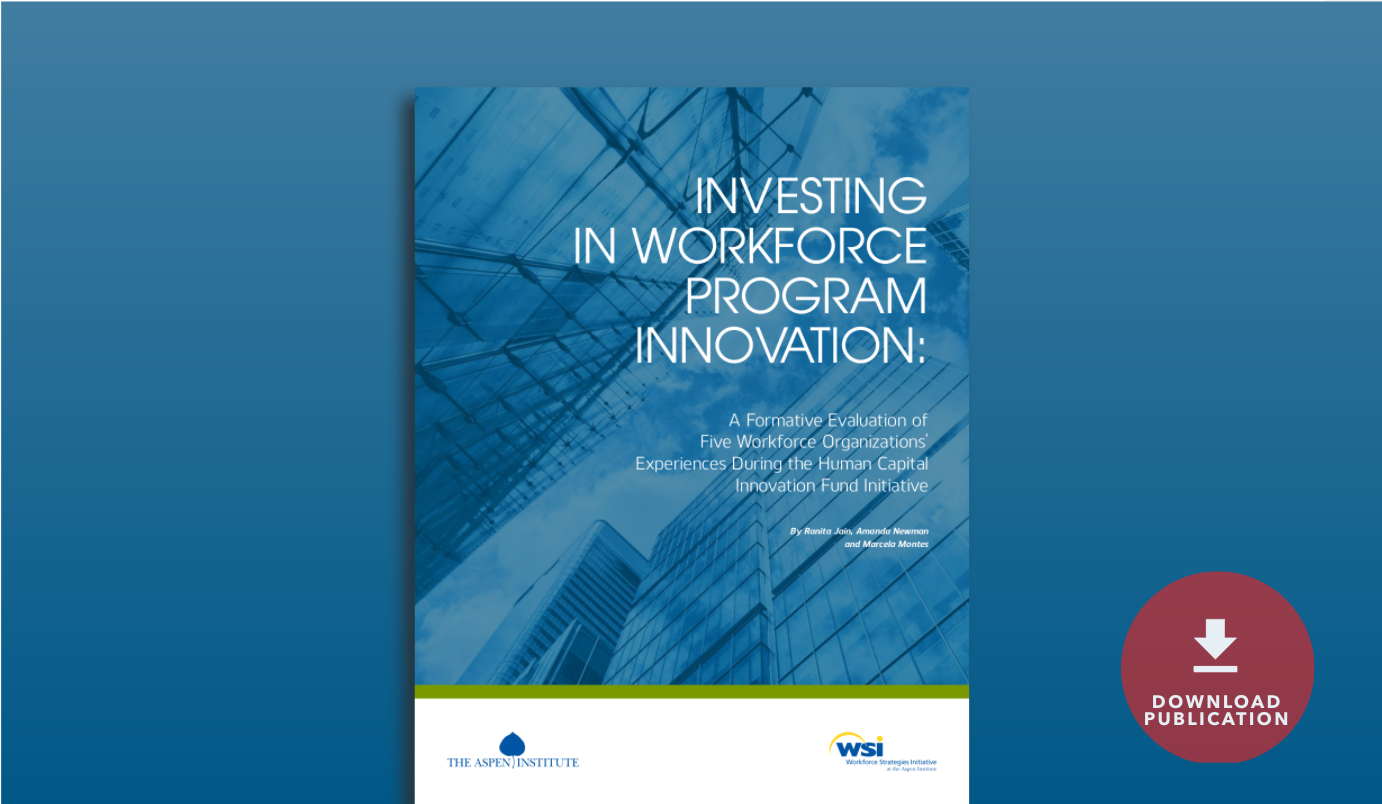Through its Human Capital Innovation Fund (HCIF), the Capital One Foundation invested in five workforce organizations testing new strategies that would enhance their ability to position low-income individuals for employment, working with the Aspen Institute to evaluate the initiative and publish a full report of the findings.
Each of the HCIF grantees served different populations in New York City, New Orleans, and Washington, DC, and targeted different industries in its regional economic context. All of their HCIF-supported projects focused on testing strategies in areas of practice that represent challenges shared by a number of other workforce programs: developing and maintaining strategic partnerships with other organizations, engaging with employers, and delivering support service strategies tailored to the needs of training participants.
The conclusions from the report make a strong case for supporting low-income jobseekers in their own communities through sustainable, long-term investment in workforce development, including capacity-building resources in 1) planning, relationship building, and strategy development over time; 2) flexible approaches to implementation that adapt in response to environmental changes; and 3) changing the way program outcomes are measured so they capture the ongoing work of relationship building and employer engagement that is required to design and deliver effective workforce development services.
In addition to its research findings, the report highlights that the investment strategy behind the HCIF initiative provided a foundation for innovation and learning that resulted in enduring capacity for the grantee organizations and others in their local workforce systems, along with concrete changes in the way they operate.


